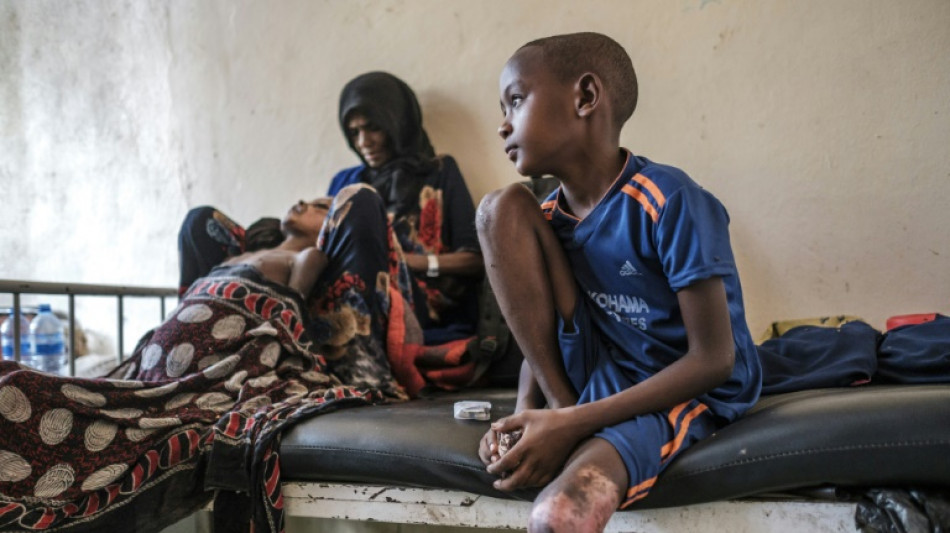
-
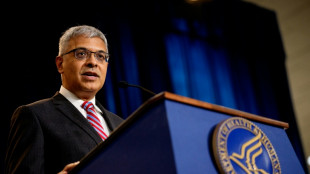 Trump administration releases report critical of youth gender care
Trump administration releases report critical of youth gender care
-
IKEA opens new London city centre store

-
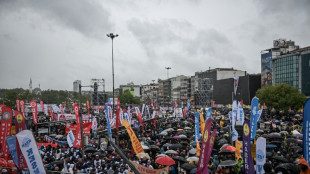 Police deploy in force for May Day in Istanbul, arrest hundreds
Police deploy in force for May Day in Istanbul, arrest hundreds
-
Syria Druze leader condemns 'genocidal campaign' against community
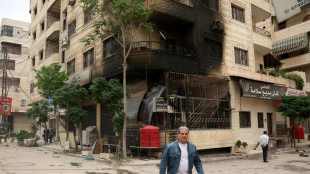
-
 Prince Harry to hear outcome of UK security appeal on Friday
Prince Harry to hear outcome of UK security appeal on Friday
-
Microsoft raises Xbox prices globally, following Sony

-
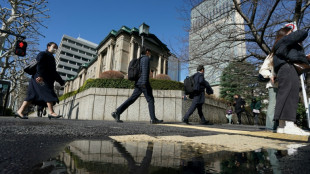 US stocks rise on Meta, Microsoft ahead of key labor data
US stocks rise on Meta, Microsoft ahead of key labor data
-
Toulouse injuries mount as Ramos doubtful for Champions Cup semi

-
 Guardiola glad of Rodri return but uncertain if he'll play in FA Cup final
Guardiola glad of Rodri return but uncertain if he'll play in FA Cup final
-
Ruud sails past Medvedev into Madrid Open semis

-
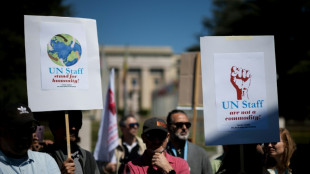 'Not a commodity': UN staff rally over deep cuts
'Not a commodity': UN staff rally over deep cuts
-
Flintoff proud as Afghan refugee protege plays for Lancashire second team

-
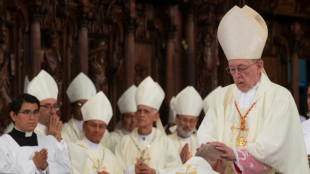 Peruvian cardinal accused of abuse challenges late pope's sanction
Peruvian cardinal accused of abuse challenges late pope's sanction
-
Trans women barred from women's football by English, Scottish FAs

-
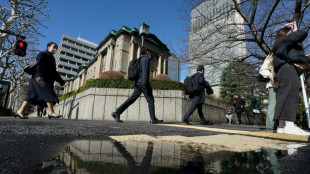 Oil prices drop, stocks diverge amid economic growth fears
Oil prices drop, stocks diverge amid economic growth fears
-
Israel brings fire near Jerusalem 'under control', reopens roads
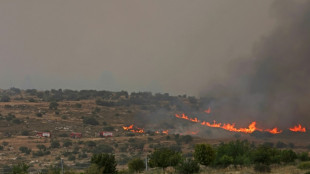
-
 Lopetegui appointed coach of Qatar
Lopetegui appointed coach of Qatar
-
UK counter-terrorism unit probes rappers Kneecap but music stars back band

-
 Yamal heroics preserve Barca Champions League final dream
Yamal heroics preserve Barca Champions League final dream
-
2026 T20 World Cup 'biggest women's cricket event in England' - ECB
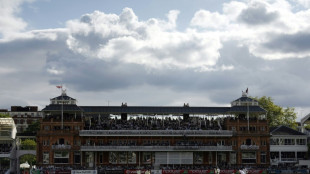
-
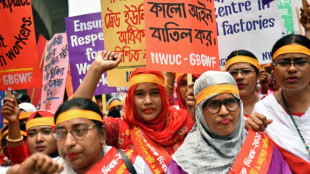 Bangladesh begins three days of mass political rallies
Bangladesh begins three days of mass political rallies
-
Children learn emergency drills as Kashmir tensions rise
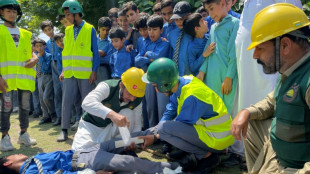
-
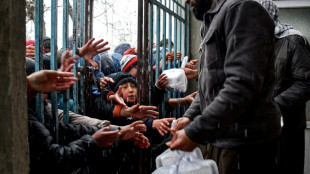 Millions of children to suffer from Trump aid cuts
Millions of children to suffer from Trump aid cuts
-
Veteran Wallaby Beale set for long-awaited injury return
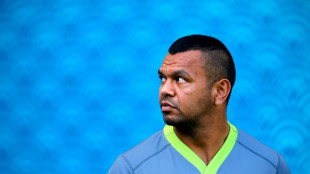
-
 Syria's Druze take up arms to defend their town against Islamists
Syria's Druze take up arms to defend their town against Islamists
-
Tesla sales plunge further in France, down 59% in April

-
 US calls on India and Pakistan to 'de-escalate'
US calls on India and Pakistan to 'de-escalate'
-
Israel reopens key roads as firefighters battle blaze

-
 Europe far-right surge masks divisions
Europe far-right surge masks divisions
-
James will mull NBA future after Lakers playoff exit

-
 Ukraine's chief rabbi sings plea to Trump to side with Kyiv
Ukraine's chief rabbi sings plea to Trump to side with Kyiv
-
Australian mushroom meal victim 'hunched' in pain, court hears

-
 Lakers dumped out of playoffs by Wolves, Rockets rout Warriors
Lakers dumped out of playoffs by Wolves, Rockets rout Warriors
-
Booming tourism and climate change threaten Albania's coast

-
 US reaching out to China for tariff talks: Beijing state media
US reaching out to China for tariff talks: Beijing state media
-
Tariffs prompt Bank of Japan to lower growth forecasts

-
 Kiss faces little time to set Wallabies on path to home World Cup glory
Kiss faces little time to set Wallabies on path to home World Cup glory
-
Serbian students, unions join forces for anti-corruption protest

-
 Slow and easily beaten -- Messi's Miami project risks global embarrassment
Slow and easily beaten -- Messi's Miami project risks global embarrassment
-
Fan in hospital after falling to field at Pirates game

-
 Nuclear power sparks Australian election battle
Nuclear power sparks Australian election battle
-
Tokyo stocks rise as BoJ holds rates steady

-
 Bank of Japan holds rates, lowers growth forecasts
Bank of Japan holds rates, lowers growth forecasts
-
'Sleeping giants' Bordeaux-Begles awaken before Champions Cup semis

-
 Napoli eye Scudetto as Inter hope for post-Barca bounce-back
Napoli eye Scudetto as Inter hope for post-Barca bounce-back
-
Germany's 'absolutely insane' second tier rivalling Europe's best

-
 PSG minds on Arsenal return as French clubs scrap for Champions League places
PSG minds on Arsenal return as French clubs scrap for Champions League places
-
UK WWII veteran remembers joy of war's end, 80 years on

-
 Myanmar junta lets post-quake truce expire
Myanmar junta lets post-quake truce expire
-
Rockets romp past Warriors to extend NBA playoff series


'Afar has been raided': Suffering stalks Ethiopia's forgotten front
The shell crashed through Aicha Nur's flimsy hut just as she was serving a lunch of bread and milk to her nine-year-old son Tahir.
His slim body quickly became engulfed in flames.
She grabbed Tahir and another son before fleeing on foot to safety, dodging an artillery assault allegedly carried out by Tigrayan rebels on her village in northern Ethiopia's Afar region.
They managed to escape, but Aicha's six other children remain unaccounted for.
She worries she has lost them forever to what has quietly emerged as the most active front in Ethiopia's grinding war.
More than 15 months since the first shots rang out, foreign envoys are talking up paths to peace for Ethiopia and Prime Minister Abiy Ahmed publicly refers to the conflict in the past tense.
But Afar is enduring its roughest period yet, sparked by a fresh rebel offensive that has yielded massive destruction and displacement, according to officials and residents.
Across the arid, punishingly hot region, shell-shocked survivors await food handouts at schools that have been transformed into makeshift displacement sites.
Afar's only referral hospital is stretched well beyond its bed capacity, with doctors running low on anaesthesia amid a seemingly endless influx of civilians with fractured limbs.
All the while, patients wonder aloud why no one seems to be paying attention, complaining that "their voices haven't been heard", said hospital CEO Hussein Aden.
"We've been dying for a long time now, but nobody has listened to us," Aicha told AFP as she propped Tahir up on his hospital bed, fanning away flies from his burned and blistered face.
- Outgunned -
The war erupted in Ethiopia's northernmost Tigray region in November 2020, but Afar did not see combat until July 2021 when the Tigray People's Liberation Front (TPLF) rebel group expanded its operations.
Late last year, fighting intensified in Afar before Abiy, winner of the 2019 Nobel Peace Prize, deployed to the region as part of a counter-offensive that ultimately pushed the rebels back into Tigray.
Those bouts of hostilities pale in comparison to what Afar residents say has unfolded in recent weeks: unremitting attacks involving many more Tigrayan fighters and much heavier weapons, including tanks and automated cannons.
Afar forces, armed with Kalashnikov rifles and lacking military backing, have been thoroughly outgunned.
"You can't defeat mortars with a Kalashnikov," said Ibrahim Abdala, a militia fighter who was shot in the chest in Afar's Kuneba district this month.
- 'Not even a rug to sleep on' -
Afar civilians fleeing the latest attacks describe harrowing, days-long journeys on foot towards towns that are more secure but woefully ill-equipped to feed and shelter them.
Regional government documents seen by AFP indicate 294,000 people were displaced in January, and a regional spokesman said the number is now up to 350,000 since the start of the year.
It's unclear when or even if they will be able to return home, with Afar's western border reportedly occupied by the TPLF.
"All the schools, clinics, hospitals that were constructed in this space of time are now gone on the western border. The whole lot," said Valerie Browning, an aid worker who has lived in Afar for more than three decades.
"Afar has been raided, vandalised, and there is not that much left."
Her claims could not be independently verified.
On a recent afternoon, scores of women and children sat in a sweltering dried-out riverbed, clustered under shade provided by acacia trees and sharing food handouts as boys struggled to play football using a plastic water bottle.
"You see the truth with your own eyes. We have been evicted from our homes and are eating biscuits," said Mohammad Adem Endrisi, a 32-year-old schoolteacher from Kuneba.
"There are pregnant women among us... There is not even a rug to sleep on here."
- 'Path of destruction' -
Aid workers are also worried about sky-high malnutrition rates in Tigray.
The UN says recent fighting has made it impossible for humanitarian convoys to enter Tigray via the Afar capital Semera -- currently the only functioning overland route.
The TPLF has defended its push into Afar, saying it was provoked by attacks on its positions within Tigray and claiming it "does not have a plan to remain in Afar for long."
It also points out that Tigray has been under what the UN terms a "de facto humanitarian blockade" since long before the latest clashes erupted in Afar, while maintaining that its fighters have never prevented aid trucks from passing.
But that argument does not resonate with Afar residents.
"The TPLF has chosen the path of destruction, not the path of peace," said Ahmed Nuro, a local official in the border town of Abala.
"They will never stop firing."
Th.Berger--AMWN